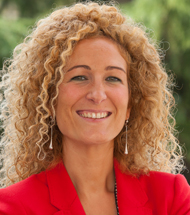Secondary cancer survivors, an area to be investigated
Secondary cancer survivors are close family members who are involved during the disease process and who have specific needs to meet

PHOTO: Manuel Castells
Following World Cancer Survivors' Day, last Sunday, June 3, researcher and professor Cristina García Vivar analyzes what it means to be a survivor and how family members are also survivors because of their involvement in all stages of the disease: diagnosis, treatment, remission and late effects derived from treatment, etc. "Increasinglythe research is turning to the family to try to meet their training, emotional and social needs as well," comments Professor García Vivar.
Cancer survivors are those people who, after being diagnosed with a malignant tumor and completing treatment, leave the hospital and return to their community and try to normalize their lives. However, it has been discovered that these people have specific needs - such as fear of recurrence, uncertainty about the future, how to manage late effects of treatment, or promoting their health, among others - that are not being met. Similarly, the family of cancer survivors experiences needs for information and emotional support, because cancer is a family experience.
One of the most common needs is that of training. Knowing when an ailment is the result of a possible relapse of the disease or when it is something totally isolated. "It happens a lot that cancer survivors come to primary care anxious about a possible recurrence when they have pain of any kind subject". This is where the training of professionals who know how to identify whether it is a late effect of the treatment they received at the time or whether, on the contrary, it is simply a routine ailment, is necessary.
García Vivar explains that "there isa gap in the field of training of professionals who know how to detect these deficiencies and know how to solve them effectively". And here the role of the nurse is very important. "The nurse's work tends to be better known when the patient is hospitalized and receiving treatment, but there are many more who find themselves lost in the transition, that is, once the treatments have ended. There the nurse has the task of educating them to identify a sign of recurrence from what is not, learning to manage situations of uncertainty, promoting healthy lifestyle habits, etc.". At final, the nurse plays an essential role in empowering the cancer survivor and his or her family to help them live with the chronic cancer process.





